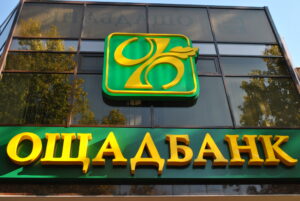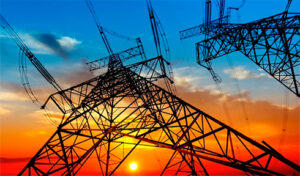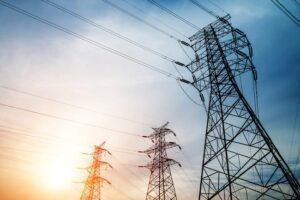
Oschadbank and the state-owned energy trader Energy Company of Ukraine (ECU) have signed a memorandum of cooperation to simplify the procedure and improve the conditions for lending to new energy projects in the territorial communities of Ukraine.
As explained in a release from the company on Thursday, the parties have created a joint program to simplify the financing and implementation of energy projects at the community level. According to the memorandum, the company will carry out economic and technical analysis of community-initiated projects that apply for funding. The company will also offer communities market-based tools to improve the economic efficiency and sustainability of such projects, including cooperation within self-production mechanisms, aggregated and balancing groups. The economic models of the projects developed by the ECU will become the basis for the financial assessment of their profitability and payback by Oschadbank when making lending decisions.
“In our experience, one of the barriers to the development of decentralized generation is the lack of relevant competence in the vast majority of small communities. Engaging the specialized expertise of ESU will allow communities to assess the potential for developing their own energy projects, which can not only ensure uninterrupted energy supply or replace it with their own generation, but also bring income to the community budget,” commented Yuriy Katzion, Deputy Chairman of the Board of Oschadbank in charge of corporate business.
He added that Oschad has deep expertise in working with energy projects of any complexity, and its market share in this market is over 31%.
According to Vitaliy Butenko, CEO of ECU, the company is constantly looking for and creating ways to strengthen the market paradigm of ensuring the security of energy supply for communities, and the combination of the deep market expertise of its team with the reliable financial platform of Oschadbank creates the conditions for achieving win-win solutions in one of the most complex but strategically important energy supply sectors.
As reported, in October 2024, CEO Vitaliy Butenko said that the company wants to occupy the niche of a state-owned distributed generation operator (DG) to help utilities and cities with its launch and operation. On December 19, EKU, SIGRE-Ukraine Association and the Association of Small Cities of Ukraine (ASCU) signed a memorandum of cooperation in the development of distributed generation in the regions.
In a blitz interview with Energoreforma in early January 2025, Butenko noted that the company is developing a special unit that will focus on comprehensive support for the development of distributed generation in the regions. According to him, the company will identify a list of joint pilot projects for implementation, which it will be able to scale up to other communities in the country.
In a blitz interview with Energoreforma at the end of February 2025, Yevhen Myachyn, Director of the Corporate Business Development and Support Department of Oschadbank, said that the bank in the corporate business segment for a month and a half of this year has already signed EUR 40 million in loan agreements for energy projects, which is almost as much as for the whole of last year – EUR 45 million, so he sees a clear trend towards an increase in the volume of financing for energy projects.

JSC Energy Company of Ukraine (ECU) is increasing electricity imports from the EU to compensate for losses in the Ukrainian power grid due to hostile attacks. Starting from mid-March, the daily volume of imports by the state-owned trader has increased by an average of 2 times.
The company continues to import electricity from Slovakia and Romania, and in March it also started supplying electricity from Hungary. Today, the company is the second largest importer of electricity in Ukraine.
“Over the past two years, Ukraine, together with the EU, has significantly increased its technical and organizational capabilities for electricity imports, which now plays a crucial role in the stable energy supply of consumers,” said Vitaliy Butenko, CEO of the Energy Company of Ukraine. “Given the continuing massive attacks on energy facilities, the Government of Ukraine continues to actively cooperate with European partners to obtain additional import opportunities.
Reference
Energy Company of Ukraine (ECU) is a national energy trading company that offers comprehensive solutions for the purchase, sale and management of energy resources. The company was established in 2022 without attracting or transferring state assets or property. Revenues are generated by high-tech trading products and instruments.
The company is one of the TOP-5 traders in Ukraine in terms of electricity sales, a leader in cross-border energy trading, and a TOP-2 trader of green electricity.
The company established the first state-owned balancing group of electricity market participants, which is now the second largest in Ukraine. The company’s customers generate 10% of Ukraine’s GDP. The company is 100% owned by the state.

JSC “Energy Company of Ukraine” is ready for any developments in the electricity market, in particular, to stop exports, said Vitaliy Butenko, General Director of the company.
“The situation in the energy sector of Ukraine today remains quite difficult in the context of the war. The company is ready for any scenario, including the cessation of exports,” Butenko said in a comment to the Energoreforma Internet portal on her request.
At the same time, he noted that the strategy of ECU JSC is primarily aimed at working in the domestic market.
“At the same time, we took advantage of the opportunity to export electricity, which made it possible for the state to earn additional profit. For 1.5 months, the income of three state-owned companies from the export activities of ECU amounted to almost UAH 2 billion, and the state’s share in electricity exports to Romania and Slovakia in September reached about 44%,” Butenko emphasized.
Regarding the loan in the amount of UAH 500 million, provided to the company NAEK by Energoatom, Butenko noted that its repayment does not depend on the presence or absence of exports.
“In accordance with our obligations to SE NAEK Energoatom, the state energy trader will repay the loan by the end of this year,” the head of ECU stressed.
As reported, a source of Energy Reform in the government said that from October 10 to October 15, a decision could be made to stop electricity exports to Europe, currently carried out at a capacity of 300 MW. The reason for this is the shortage of power generating capacities, associated, in particular, with the shutdown of all six units of ZNPP, the repair of 1.5 units at other NPPs and the possible withdrawal of another unit for repair, which leads to excess coal consumption, as well as a large number of TPP units in repair.
JSC “Energy Company of Ukraine” (JSC “EKU”), 100% of whose shares belong to the state, on August 17 for the first time entered the export of electricity in the Romanian and Slovak directions, from October 1 it began to export electricity to Poland.
Receipts from ECU by the state-owned NPC Ukrenergo (as a fee for the cross-section and transmission of electricity), SE Guaranteed Buyer (as part of the PSO for the population) and NNEGC Energoatom (payment for electricity) from August 19 to 13 September amounted to almost UAH 1.542 billion.
Earlier, Butenko said that state investments in ECU start-up capital, provided to him in August by NNEGC Energoatom in the form of repayable financial assistance in the amount of UAH 500 million, would be returned by the end of 2022.
According to ECU estimates, these investments can bring UAH 8.2 billion in income to state-owned companies by the end of the year.
JSC “ECU” is a diversified energy supply company that carries out operations for the purchase, sale, supply and market optimization of energy consumption for commercial customers. While the company supplies for export, however, it plans to work also in the domestic market. 100% of the company’s shares belong to the state, the powers to manage them are exercised by the Ministry of Economy.